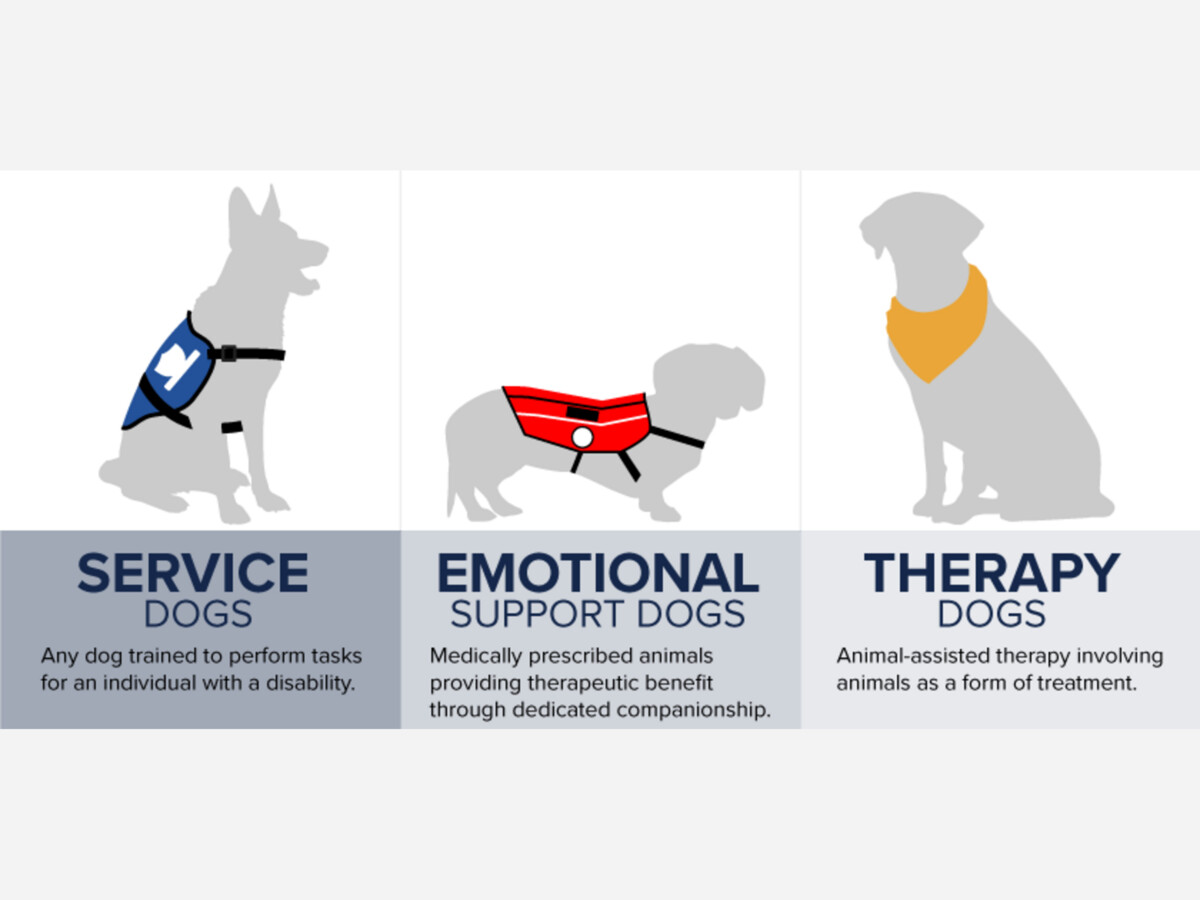Image


A service animal is a dog (or some miniature horses) trained to perform major life tasks and assist those with physical or severe psychiatric impairments/disabilities.
Service animals are also known as assistance, assist, support, or helper animals depending on the country of residence and the animal's function.
A person must have an impairment (physical or severe psychiatric) that substantially limits the person's ability to perform at least one major life activity without assistance. There are no limitations to the kind of impairment that limits a major life activity.
Temporary, non-chronic impairments, environmental conditions, alternative lifestyles, and illegal use of drugs do not qualify as an impairment.
Major life activities are things like caring for oneself including bathing, dressing, shaving, meal prep and using the restroom. These activities also include eating, sleeping, standing, walking, lifting, reaching, bending, seeing, hearing, speaking, breathing, learning, reading, concentrating, thinking, communicating, interacting with others, and working.
The service animal's function and specifics as to how they assist with one of the above major life activities do not have to be disclosed to anyone other than your mental health professional.
You do not need a doctor's note. However, if challenged legally, proof of a disability will be necessary. In public, all you have to do to assert your rights to a service animal accompanying you is to confirm you are disabled (you don't have to specify how) and provide credible verbal evidence of what the animal is trained to do. You are not required by law in the state of NJ to have physical documentation.
The Americans with Disabilities Act prohibits discrimination on the basis of disability in several areas: state and local governments, places of public accommodation, employment, telecommunications, and transportation.
You are entitled by law to be accompanied by your service animal anywhere a non-disabled person could go.
If you have a disability and use a service dog, you have the right to be accompanied by your service animal in the cabin of the aircraft at no additional fee.
Some airlines, crowded planes, or in the case of large animals, will require that the animal be crated. Otherwise, the service animal must be kept on the floor between your knees and the seat in front of you.
The Fair Housing Accommodations Act of 1988 mandated that property owners and landlords must accommodate service animals regardless of their policy towards pet ownership on their properties.
A letter from your mental health professional stating the animal is a necessary part of your mental health or physical care may be necessary to secure access for you and your service animal to housing that prohibits pets.
Registration of a service animal is not required in New Jersey, instead, it is voluntary. However, registration legitimizes your animal's function as necessary to your wellbeing and eliminates any hassle or confrontation one may encounter without proper registration or proof. If you have a service animal, consider registering here to make life easier and less problematic.
An emotional support animal is a person's pet that has been prescribed by a licensed mental health professional for the treatment of a severe emotional or psychiatric condition.
The animal is therefore prescribed as a necessary part of a patient's treatment program and designed to bring comfort and minimize the negative symptoms of an emotional or psychiatric disability.
All domesticated animals of any age can qualify as emotional support animals. The animal does not need to be trained in any specific task, as their presence alone mitigates the symptoms associated with one's disability.
The only requirement of an emotional support animal is that they are manageable in public and not a nuisance in or around the home setting.
To qualify for an emotional support animal, a patient must have an emotional disability diagnosed by a mental health professional. The mental health professional must write a properly formatted prescription letter for the emotional support animal.
It is important to note that a medical doctor often does not qualify as a health professional able to prescribe emotional support animals. To be prescribed an emotional support animal a patient needs to receive a prescription from a mental health professional.
A mental health professional will write a prescription letter for a service or emotional support animal. These letters should state that you are a patient of the mental health professional under their care and treatment for a disability included in the Diagnostic and Statistical Manual of Mental Disorders (or DSM). The letter must state that the patient's disability limits at least one major life function or life activity and that the animal is prescribed as a necessary part of treatment for the described disability. The letter should be dated, including the mental health professional's letterhead, the doctor's license number, the license type, and the date the license was issued as well as the state the license was issued in.
What else would you like to know about service animals and emotional support animals? Let us know in the comments below.